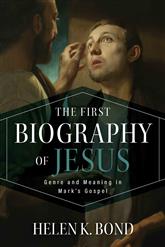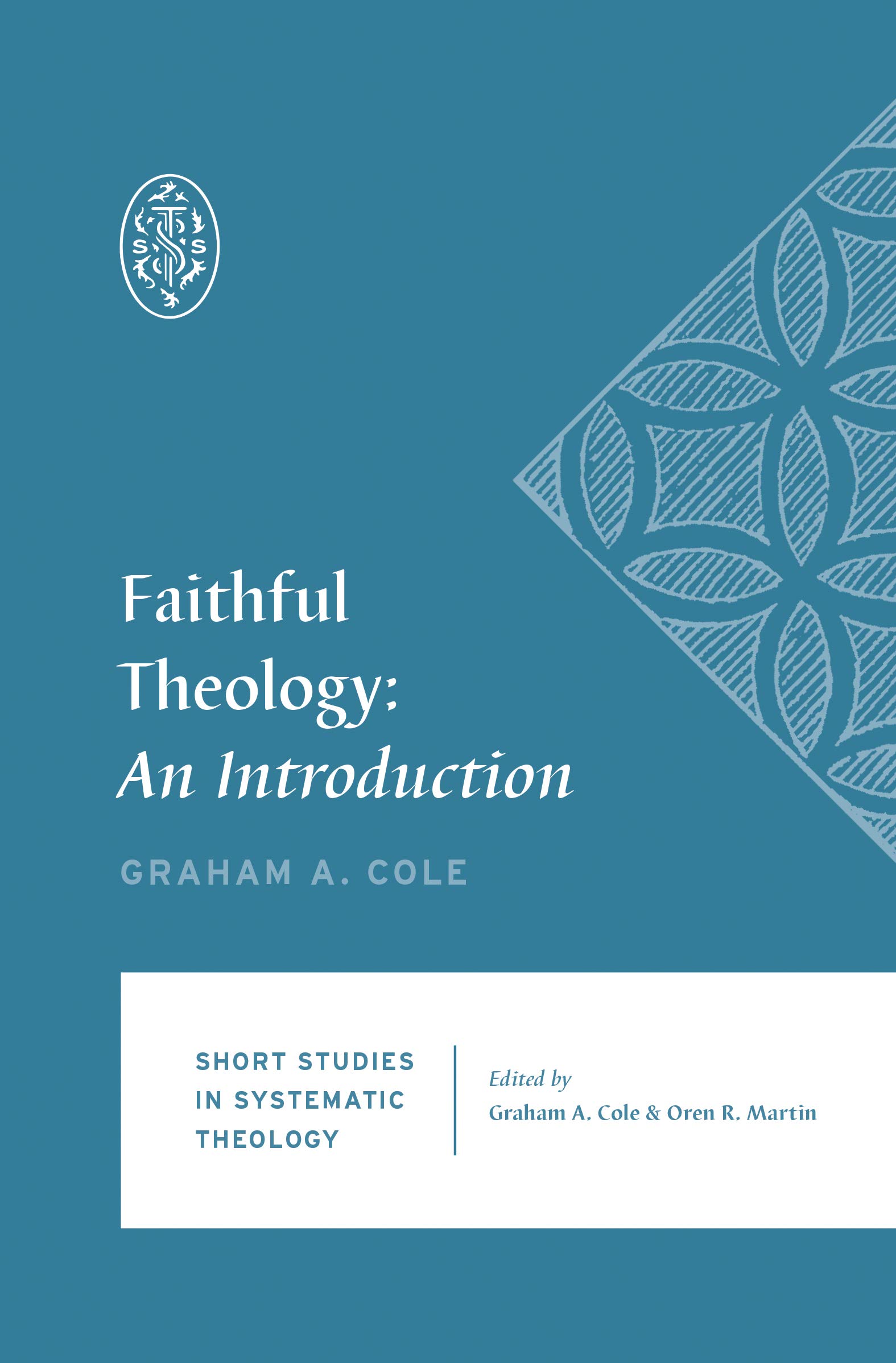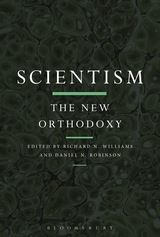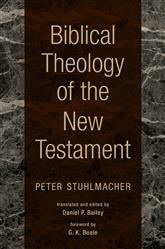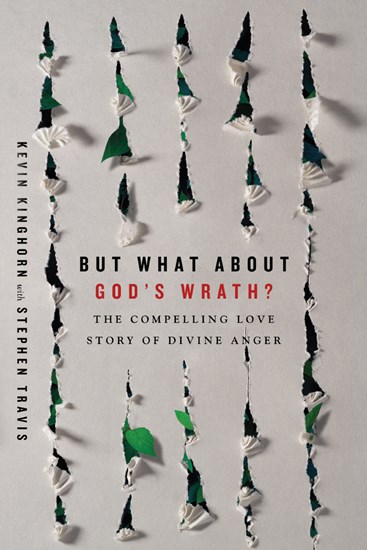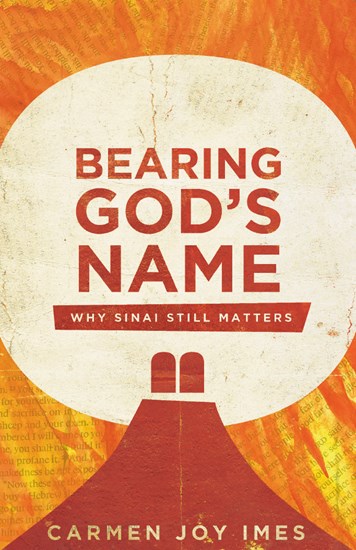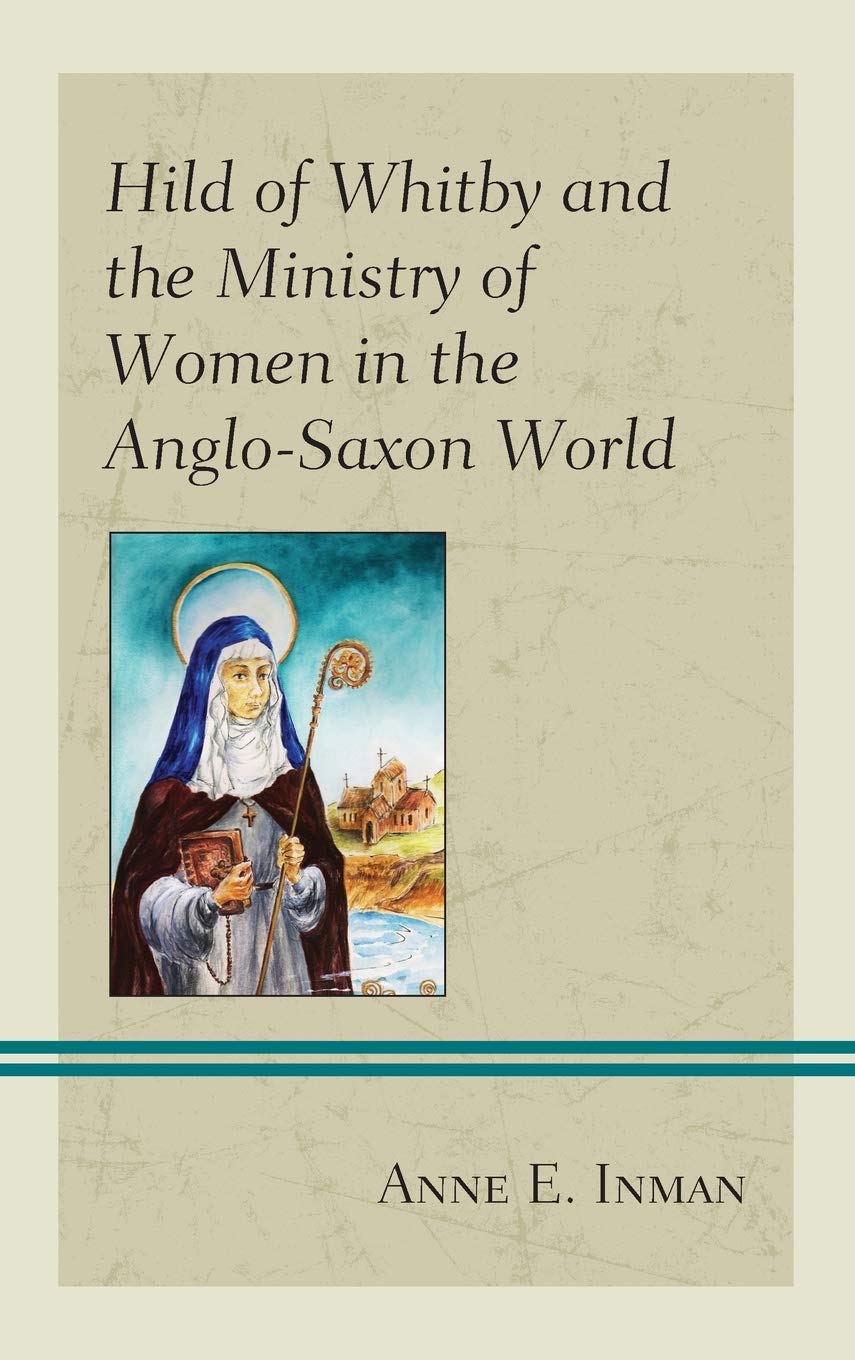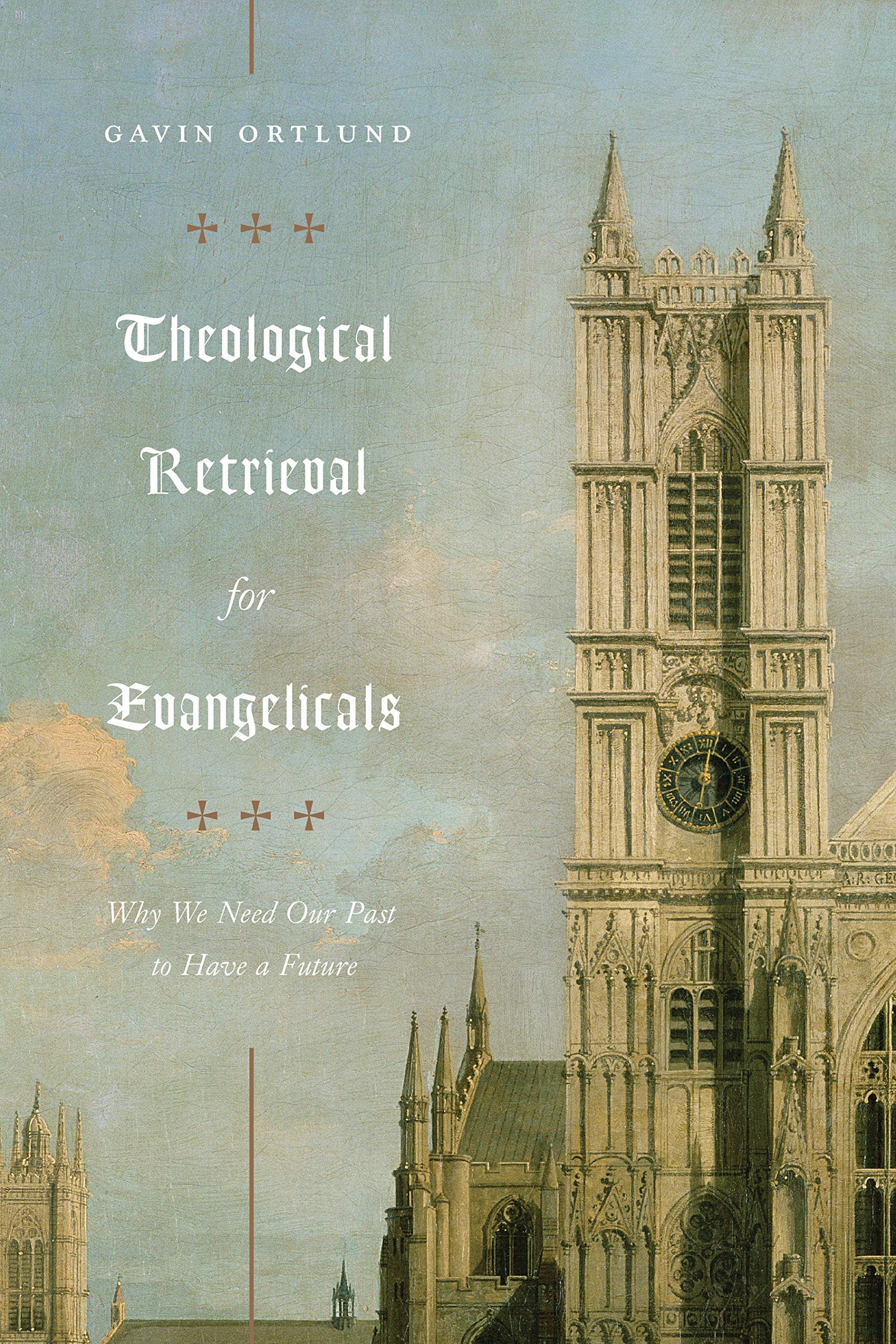Bond, Helen. The First Biography of Jesus: Genre and Meaning in Mark’s Gospel. Grand Rapids, MI: Eerdmans, 2020, 336 pp., $42.99, hardcover. Helen Bond is the head of the divinity school at the University of Edinburgh and has served as professor of New Testament since 2000. She has published extensively on topics related to Jesus, the Gospels, and their first-century environment, and her work in these areas is evident in this thought-provoking and well-researched volume. Bond operates on the assumption that establishing a text’s genre is key to interpretation, and since Mark is the earliest Gospel written, this is especially important in understanding Jesus and the particular ways in which the evangelists portrayed him. Along with much of recent scholarship, Bond argues that Mark’s work belongs to the category of ancient bioi, exhibiting many of the literary conventions of this genre. From the introduction she labors to show that genre is far more than a stylistic device, but profoundly influences how the author depicts his subject as well as how the author understands the world. Seeing Mark as a biographer, she contends, is essential for understanding what he wanted to communicate about Jesus, and how he shaped, reappropriated and reconfigured…
Book Reviews
Reed, Rick. The Heart of the Preacher: Preparing Your Soul to Proclaim the Word. Bellingham, WA: Lexham Press, 2019, xx + pp.216, $13.99, hardback. “Preaching is not just hard work; its heart work” (p. xvi). It seems apropos for Rick Reed to speak to this issue, a veteran of preaching and pastoral theology, with experience in the church and the academy. Dr. Rick Reed (DMin, Trinity Evangelical Divinity School) serves as the President of Heritage College and Seminary in Cambridge, Ontario, Canada where he is Professor of Homiletics and Pastoral Studies. He was Senior Pastor at the Metropolitan Bible Church in Ottawa for fourteen years. He has been a plenary and seminar speaker for the Billy Graham School of Evangelism and a master coach for Global Proclamation Academy in Dallas, TX. He is a regular contributor to the “Ask the Religion Experts” column of the Ottawa Citizen. The Heart of the Preacher is a timely and insightful book that every practitioner of Christian preaching and pastoral ministry will want to explore. It is a tonic for the ailing ministry heart and a preventative to the potentially unhealthy preacher’s soul. Reed’s heart is to “help your heart as a preacher” (p….
Cole, Graham A. Faithful Theology: An Introduction. Short Studies in Systematic Theology. Wheaton, IL: Crossway, 2020, pp. 118, $14.99, paperback. Graham A. Cole, dean and professor of systematic and biblical theology at Trinity Evangelical Divinity school, opens Crossway’s Short Studies in Systematic Theology with his inaugural volume, Faithful Theology: An Introduction. Along with Oren R. Martin, Cole serves as an editor for the series. In the preface, they note the purpose of this new line of books: “This series … aims to present short studies in theology that are attuned to both the Christian tradition and contemporary theology in order to equip the church to faithfully understand, love, teach, and apply what God has revealed in Scripture” (p. 11). Cole’s introduction opens with a question: “How are we to get better at talking and thinking about God?” (p. 13). Here he concerns himself with a piece of prolegomena: method—but not just any method. The title of the book reveals his cards here: Cole is interested in faithful theology; after all, why would anyone content himself with anything less? He clarifies, “This book is about the method to use in doing faithful theology: faithful to God, faithful to God’s words” (p….
Keefer, Arthur Jan. Proverbs 1-9 As an Introduction to the Book of Proverbs. Library of Hebrew Bible/ Old Testament Studies 701. New York, NY: T & T Clark, 2020, pp. 224, $115, hardback. Arthur Jan Keefer is Master of Divinity and Chaplain at Eton College. He earned his PhD at the University of Cambridge. Keefer is scheduled to release The Book of Proverbs and Virtue Ethics (Cambridge University Press) in Oct. 2020. Proverbs 1—9 as an Introduction seeks to articulate the function of Proverbs 1—9, particularly how it functions with Prov 10:1-22:16 (1). The study was inspired by professor J.J. Collins (vii). Keefer divides the book into four chapters: Introduction, Character Types, Educational Goals, and Theological Context. This review will begin with a summary, followed by a critique, with recommendations at the end. Keefer claims that Prov 1-9 functions as a key or interpretive guide for Prov 10-31 (3). Two elements motivate Keefer’s research: (1) the interpretive challenges found in Proverbs 10-29, and (2) the promise made in Prov 1:1-7 that the reader will be able to understand the proverbs and sayings within the remainder of the book (1-2). Keefer finds the proverbs of chapter 10-29 as the interpretive challenge…
Richard N. Williams and Daniel Robinson. Scientism: The New Orthodoxy. New York: Bloomsbury Academic, 2016. 208 pages. $42.95. As anyone in the academy will admit, the natural sciences have been extraordinarily successful. That success translates over into wonderful (even if sometimes dreadful) technological innovations: the light bulb, GPS, laptops, transportation, iPhones, vaccines, atom bombs, television, the Internet, the plane, telescopes, et al. The list is long and growing. The methods of science appear to be so powerful that some thinkers begin to ask themselves the following questions. What if one needs the sciences to really know anything at all? What if other disciplines have been using methods that do not lead to knowledge? Why is it that the sciences have a marked history of measurable progress that the other disciplines do not have (and if they do have it, why does it take so long, and why is it so small and inconsequential?)? If the methods of science have been this powerful, why are not such methods used in all domains of inquiry? Thus, if the sciences are the only way to have real knowledge of the nature of reality, then other disciplines seem to have two choices: either gradually go…
Stuhlmacher, Peter. Biblical Theology of the New Testament. Translated and edited by Daniel P. Bailey. Grand Rapids: Eerdmans, 2018, pp. xxxiv + 935, $95.00, hardcover. The magnum opus of Peter Stuhlmacher, professor emeritus of New Testament studies at the University of Tübingen, has at long last been made available to the English-speaking world through the translation efforts of Daniel Bailey in collaboration with Jostein Ådna. A two-volume work initially published in German and passing through multiple editions (Biblische Theologie des Neuen Testaments), Biblical Theology of the New Testament [BTNT]—now appearing in one volume—introduces the English-speaking world to the state of biblical and New Testament theology in German scholarship. The introductory bibliography and survey of New Testament theologies in Chapter 1 go a long way to this effect. BTNT is divided in two “books”: Book 1, spanning some 750 pages, examines the message of the New Testament in six parts according to the chronology of its “proclamation”; and Book 2, less than 100 pages, examines questions regarding the formation of the biblical canon and how a text should be interpreted in light of its inclusion within the canon (“canonical exegesis”). In honor of Stuhlmacher’s seminal essay on the subject, Daniel Bailey…
Kinghorn, Kevin (with Stephen Travis). But What About God’s Wrath? The Compelling Love Story of Divine Anger. Downer’s Grove, IL: IVP Academic, 2019, pp. 157, $18. Kevin Kinghorn (DPhil, Oxford) is Professor of Philosophy and Religion at Asbury Theological Seminary. He has authored The Decision of Faith: Can Christian Beliefs Be Freely Chosen? (T&T Clark, 2005) and A Framework for the Good (Notre Dame, 2016) along with numerous articles and book chapters. While this book is written by Kinghorn, he acknowledges extensive dependence on the Biblical exegesis work of Stephen Travis (PhD, Cambridge), which is why Travis is referenced on the title page. The issue of God’s wrath is a practical point of contention in contemporary theology, as it has been throughout the history of Christian theology. In But What About God’s Wrath? Kinghorn seeks to defend the thesis that God’s wrath is a pattern of action of God “pressing on us the truth” of our sinfulness rooted in his love for all humanity (see p. 92). Kinghorn attempts to accomplish this in two ways. First, he provides a philosophical argument beginning with biblically and philosophically reasonable theological commitments for the conclusion that “God’s wrath is entirely an expression of…
Imes, Carmen Joy. Bearing God’s Name: Why Sinai Still Matters. Downers Grove: InterVarsity Press, 2019, xiii+225, $14.95, paperback. Carmen Imes is Associate Professor of Old Testament at Prairie College in Three Hills, Alberta, Canada. She completed her PhD in Biblical Theology (Old Testament concentration) under the direction of Daniel I. Block. Imes has authored Illustrated Exodus in Hebrew (GlossaHouse, 2018), Bearing YHWH’s Name at Sinai (Penn State University Press, 2019) and has contributed essays for Discovering the Septuagint (Kregel, 2016), Dress and Clothing in the Hebrew Bible (T & T Clark, 2019), and Write that They may Read (Wipf & Stock, 2020). Contrary to what many readers might imply from the subtitle of the book, Imes’ primary concern is not to enter into the fray by offering an opinion on the role of Mosaic Law in the life of the believer today, but rather her focus is on providing a reinterpretation of and then practical implications for the “Name Command”: “You shall not take the name of the LORD your God in vain…” (Exod. 20:7 ESV). She claims that reinterpretation is necessary due to the fact that the rendering of the original negative command (lö´ tiSSä´) does not do justice…
Inman, Anne. Hild of Whitby and the Ministry of Women in the Anglo-Saxon World. London, UK: Lexington Books/Fortress Academic, 2019, 223 pages, $95.00, hardcover. Anne E. Inman’s Hild of Whitby and the Ministry of Women in the Anglo-Saxon World clearly distills insights from years of teaching, service within the church, and research into a compact and lucid account not only of the life of Hild of Whitby, but of the roles of women in the early medieval church. In a book that offers as much perspective on modern debates about the roles of women as it does historical theology and Christian practice, both Inman’s theological training and practical experience are apparent. Inman uses the life and ministry of Hild of Whitby to frame an account of the ministry and roles of women in the seventh century church, prior to the merging of the Celtic and Roman traditions. This approach works well, although we have no surviving writings from Hild and limited information on her life, filtered primarily through the works of Bede. Yet, Hild appears throughout seventh- and eighth- century texts, as her life and ministry intersected with many (if not most) of the major political and religious figures of…
Ortlund, Gavin. Theological Retrieval for Evangelicals: Why We Need Our Past to Have a Future. Wheaton, IL: Crossway, 2019, pp. 218, $21.99, paperback. Gavin Ortlund is the senior pastor at First Baptist Church of Ojai in Ojai, California. In addition to the book being reviewed here, he is the author of a number of books, including Anselm’s Pursuit of Joy: A Commentary on the Proslogion (Catholic University Press of America, 2020), Finding the Right Hills to Die On: The Case for Theological Triage (Crossway, 2020), and Retrieving Augustine’s Doctrine of Creation: Ancient Wisdom for the Current Controversy (IVP Academic, 2020). Theological Retrieval for Evangelicals is neatly divided into two complementary parts. Chapters 1–3 comprise the first part and function as a sort of apologetic (or, as Ortlund terms it, a manifesto) for theological retrieval as a needed practice in evangelical spheres. In these chapters, Ortlund argues that retrieval of patristic and medieval theology is not a betrayal of protestantism, that such retrieval can provide the historical rootedness many evangelicals desire, and that the benefits of engaging in this work far outweigh the potential dangers. Indeed, these benefits launch Ortlund into the second part of the book, where he seeks to…

